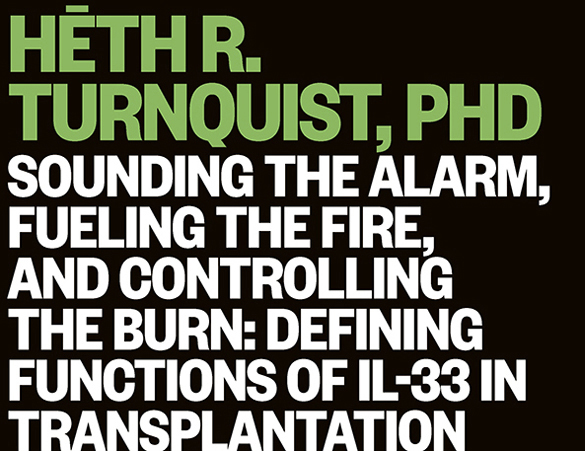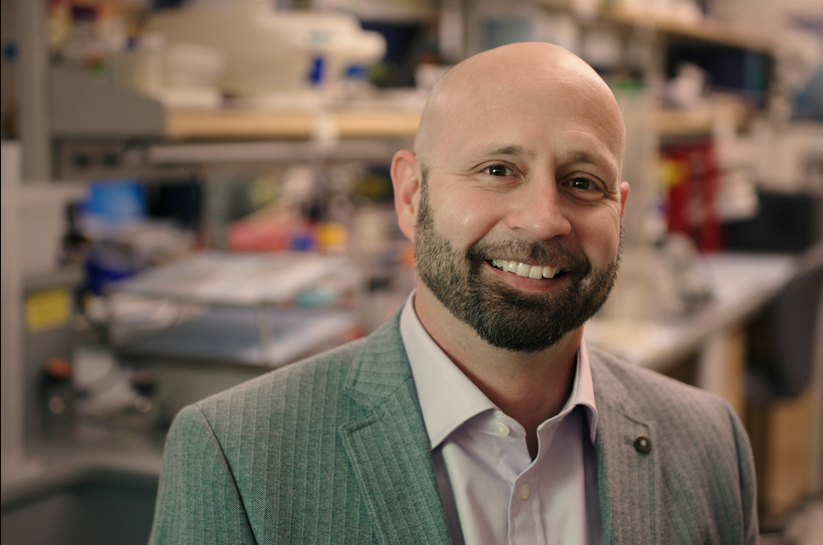 |
 |
|
||||||||||
 |
|
|||||||||||
|
|
||||||||||||
 |
|
|||||||||||
 |
|
|
||||||||||
|
|
||||||||||||
 |
 |
|
||||||||||
 |
|
|||||||||||
 |

*Unable to make it to Scaife Hall? Dr. Turnquist’s lecture will be available via live stream to people with Pitt login credentials by clicking this link (sign in using your Pitt username and password): https://pitt.hosted.panopto.com/Panopto/Pages/Viewer.aspx?id=5644f01f-df0f-47bd-8927-a93c010365a1. If you have problems with the video, contact the CSSD help line at 412-624-4357 (4-HELP). After transplantation, the immune system recognizes donor materials as “non-self” and directs an inexhaustible and destructive response toward the materials. The current answer to antidonor responses, or alloimmunity, is immunosuppressants at doses high enough to cause morbidity and mortality yet unable to prevent the eventual development of alloimmune-mediated fibrotic disease in the graft or recipient. Tissue damage is also common in transplantation, and the Turnquist Lab has shown that released “alarmins,” or self material that signals injury to the immune system, also profoundly shape transplant outcomes. Alarmins were originally assumed to be only proinflammatory; however, Turnquist’s research group has demonstrated that alarmins also possess significant regulatory properties. Of particular interest has been IL-33, which resides in the nucleus of stromal cells and is upregulated and released by injury associated with surgery, alloimmunity, and recipient conditioning. Using preclinical transplant models, Turnquist has established that IL-33 acts as a pleiotropic stimulus— able to support both proinflammatory T helper cells and regulatory T cell responses. His group is now elucidating the mechanisms driving the proinflammatory versus regulatory capacity of IL-33 in transplantation. These investigations will aid the development of new biologics that will be able to, hopefully, reduce our reliance on immunosuppression. Additionally, IL-33 may also stimulate reparative functions in immune cells, and Turnquist’s group is also establishing whether this mechanism can be harnessed to prevent the fibrosis associated with chronic solid organ rejection or graft versus host disease.
|
 |
|
|||||||||
 |
|
|||||||||||
    |
|
|||||||||||
|
|
|
|
|
|
|
|
|
|
|
|
|
|